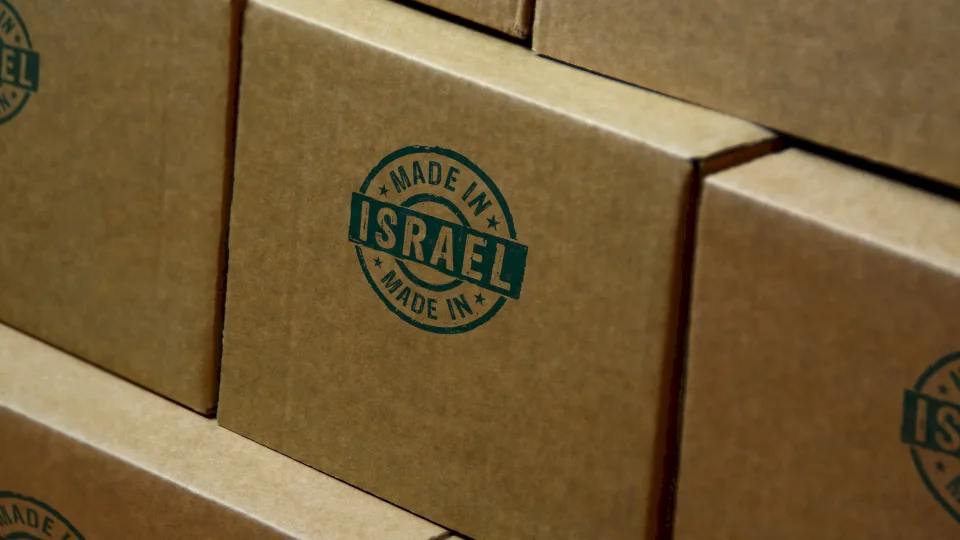
Israeli Media: We Are Facing a Political Tsunami and Our Boycotts Are Escalating
SadaNews - Israeli media outlets have discussed the widening scope of economic, academic, and artistic boycotts against Israel globally, describing it as a "political tsunami" threatening export sectors, with increasing signs of escalating rejection of Israeli products and a decline in their standing in international markets and exhibitions.
The Israeli Channel 12 reported that exports are facing a real crisis due to a growing international refusal to accept products labeled "Made in Israel," pointing out that markets are no longer willing to deal with Israeli goods in several areas, indicating a clear escalation in the boycott.
Nini Goldfine, Deputy General Manager of NSG Consulting, stated that "the quiet boycott is no longer quiet," confirming that it has become increasingly loud and public, reflecting directly on the interests of Israeli companies and the volume of their foreign transactions.
One Israeli farmer noted that major retail chains are avoiding purchasing agricultural products from Israel for fear of consumer backlash, explaining that fields are now filled with fruits that have not found their way to global markets.
Orel Lev Har, General Manager of Redwine Health Products, said that distributors in Europe have explicitly informed him that they are unable to market his products due to the "Made in Israel" label, noting that even the Israeli trade mark, which begins with the number 792, has become a reason for consumers to reject purchasing those products.
Serious Implications
Lev Har added that he signed a contract to distribute his products in Europe valued at 3 million dollars annually, but participation in international exhibitions is now facing political obstacles, as he was advised at an exhibition in Poland in 2025 not to speak Hebrew, which he considered a serious reflection on his country's image.
Goldfine confirmed that global companies have become unwilling to engage with Israel since the start of the war, pointing out that partners from Asia and the Pacific have informed him that they are facing familial and community pressures to stop cooperating with Israeli companies that "pay taxes to an immoral state," as he expressed.
He emphasized that the current situation should raise concern among Israelis, whether they are citizens or small business owners, as this global trend is expanding at a rapid pace that is difficult to ignore.
In the same context, Israeli Channel 13 addressed the hesitation of the low-cost airline Ryanair to resume its flights to Israel next month, as its director general stated he is "unsure about returning," amid estimates that the decision is primarily driven by political motives.
Economic affairs correspondent Noga Talman reported that several indicators suggest that foreign companies are no longer willing to resume their activities in Israel, believing that the publicly stated reasons conceal a clear political stance on the war.
Cultural Boycott
Israeli media also discussed the joining of thousands of artists to boycott campaigns, as cultural affairs reporter Avi Sidrin from Channel 12 noted that the number of signatories on a petition to boycott Israeli cinema has risen to around 4,000, including Oscar winners such as Joaquin Phoenix and Emma Stone.
Sidrin pointed out that this petition has sparked widespread controversy in the United States and beyond, as it includes prominent names in Hollywood and explicitly calls for refraining from any cultural collaboration with Israel at this current stage.
The impact of the boycott has also extended to the Eurovision Song Contest scheduled to take place in Vienna in 2026, as political affairs analyst Gili Tamari from Channel 13 discussed increasing threats from countries like Ireland, Slovenia, and Iceland to withdraw if Israel is allowed to participate.
Tamari indicated that Spain went further by labeling Israel as a "genocidal state" and demanded its exclusion from the competition, just as was done with Russia following its invasion of Ukraine, which increases the likelihood of voting against its participation in the upcoming meeting.
For her part, cultural affairs correspondent Amit Hirazi from Channel 11 clarified that Israel's participation in Eurovision now hinges on the awaited vote, asserting that the discussions currently taking place within the organizing union do not bode well for Tel Aviv.

The Problem of Shekel Overcrowding Worsens.. Fuel Station Owners Threatened with Closure o...

The Palestinian Economy at a Crossroads: 4 Files Awaiting Resolution

Currency Exchange Rates Against the Shekel on Sunday (February 1)

Moody’s Changes Israel's Outlook from Negative to Stable

Currency Exchange Rates Against the Shekel (January 31)

Gold Falls Amid Bets on Tightening Monetary Policy

Revealing the Travel Costs of the Israeli Minister of Economy for 2025
